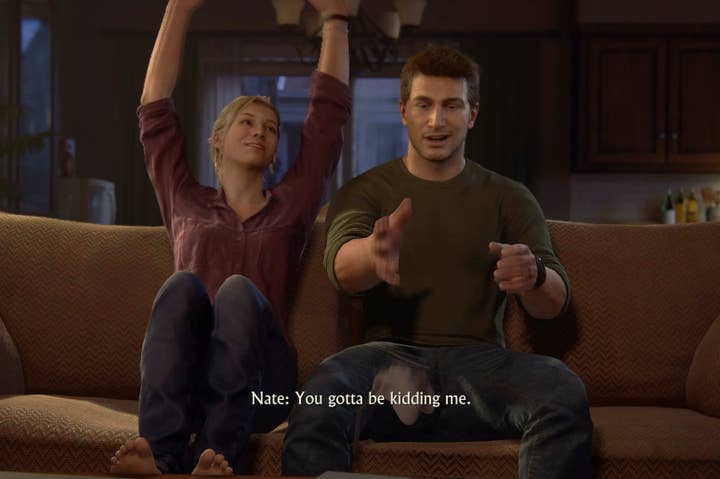Uncharted 4 was inspired by the industry's struggle against crunch
Naughty Dog embraced "downbeat moments" and reconsidered the importance of fun, to the chagrin of certain fans
Nathan Drake's struggle to leave the addictive thrill of his past adventures behind is at the core of Uncharted 4, and according to creative director Neil Druckmann, it was a case of art imitating life.
In a new and very detailed interview with Rolling Stone, Druckmann said that the central theme of "passion versus settling down" was a reflection of the drive that leads so many people working in game development to crunch.
"We've all joined this industry with the hope of affecting people, touching them in some way. Which is why we work so hard, sometimes to destructive outcomes," he said. "So in this game, I really wanted to explore that. To kind of use the pulp action-adventure story as a backdrop, but it's all kind of a metaphor for our life's pursuit."
Naughty Dog's commitment to exploring the idea is admirable. Compromises are often made when chasing a large audience, leading to a certain homogeneity in the finished products. With Uncharted 4, Naughty Dog actually ignored negative feedback on the game's more deliberately paced sections, most of which was made on the assumption that creating "fun" is the ultimate goal of game development.
"I know there are people on NeoGAF right now complaining about the beginning of this game. They hate how slow it is... I'm OK if we lose some of those people"
Neil Druckmann, creative director
"We took [the word "fun"] off our focus tests," Druckmann explained. "It was just a weird word that people were getting hung up on. How do you rate the dive sequence at the beginning of Uncharted 4? Is that fun? There's no real challenge. There is a perceived threat, where they talk about oxygen, but that's just weird narrative fluff. You can't really run out of oxygen.
"But that level is important, to set up how mundane Nate's life is. Just rating it on its own, one through five, that was constantly the lowest-rated level. But it kind of had to be. We're not going to change that."
Simply changing the question from "How fun did you find this level?" to "Overall, how would you rate this level?" led to an immediate improvement in the test scores. Nathan Drake no longer wanted a life spent only in the pursuit of high adventure and chaotic action, so Naughty Dog needed to create an experience that mirrored his personal struggle.
"To us, it's an evolution of the studio," Druckmann said, pointing to the Himalayan village sequence in Uncharted 2 as a pivotal moment. "I guess it's getting more and more confident in using our medium to have these downbeat moments."
However, as Nathan Drake learns over the course of the game, maturity demands a measure of sacrifice. Druckmann is clear-eyed about the fact that, for certain players, the creative direction Naughty Dog has explored in The Last of Us and Uncharted 4 will be too much - or too little, depending on your point of view.
"I guess what I meant is that I know we're going to lose some people. I know there are people on NeoGAF right now complaining about the beginning of this game. Because I read some. They hate how slow it is. They don't believe it's really a game until you get to the end of the auction and you get your gun and you start shooting at people.
"That, to them, is the game. I'm OK if we lose some of those people. Hopefully they're replaced with other people who are intrigued by the more conscious pacing."
There's a great deal more in Rolling Stone's interview, which also lists a number of intriguing sections that didn't make the final cut.

